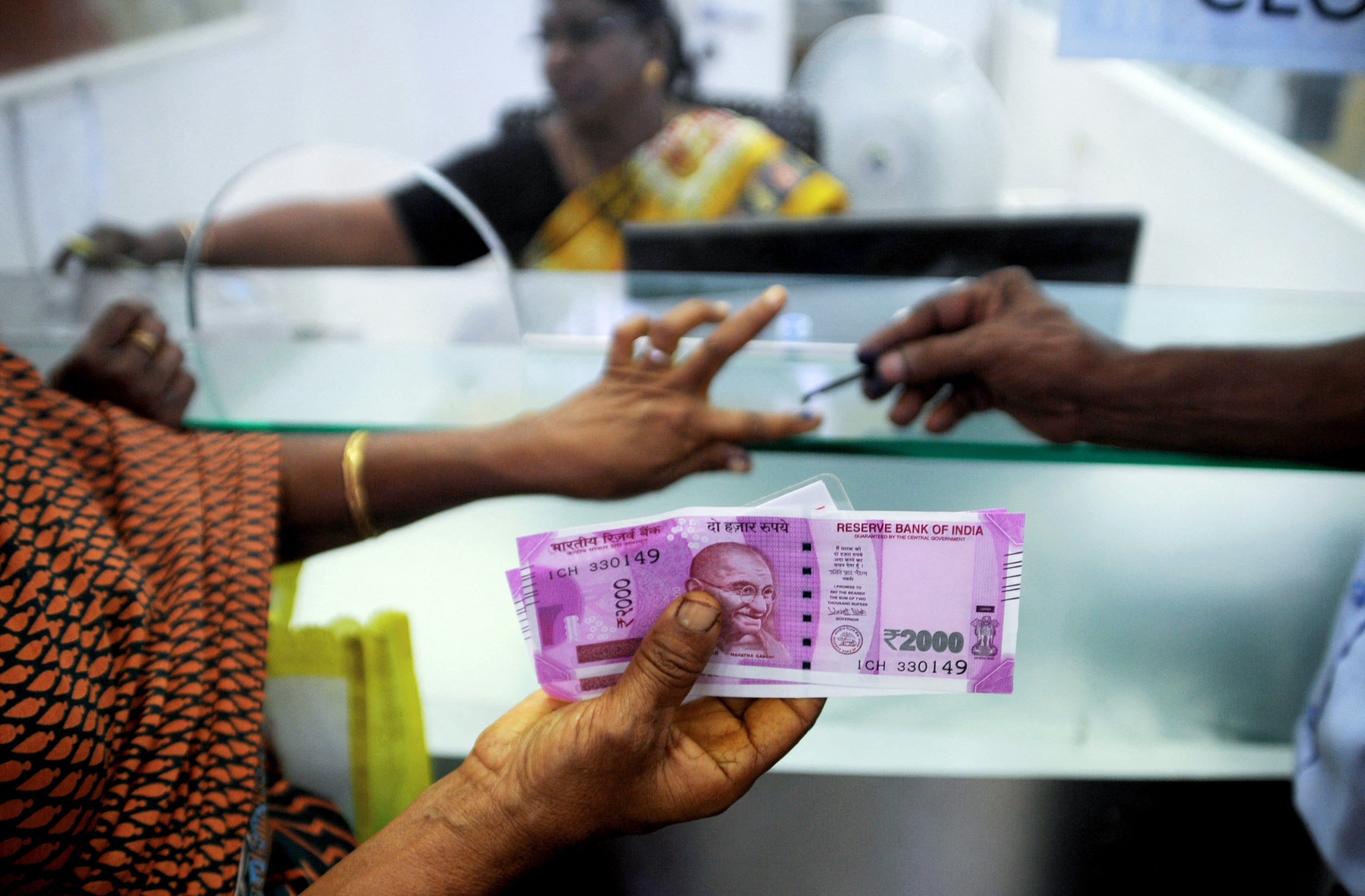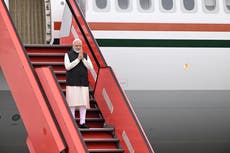India announces surprise withdrawal of highest-value banknotes
The high-value note will remain a legal tender, the country’s central bank has said

India is withdrawing its highest value currency notes of Rs 2,000 (£19.4) from public circulation, the country’s central Reserve Bank of India announced on Friday but added that the denomination will continue to be a legal tender.
As per the evidence, the Rs 2,000 denomination was not being commonly used for transactions, the central bank said in a statement.
People in the country were advised to deposit and exchange them for smaller denominations by 30 September. RBI’s order, however, has created confusion among the people. On one hand, the bank stated that Rs 2,000 note will continue to be legal tender but failed to mention a deadline.
The exchange of Rs 2,000 notes will start on 23 May giving banks and the public sufficient time to exchange their saved currency into notes of other denominations.
The RBI has cited a “clean note policy” under which it plans to replace the old currency with good-quality currency notes and coins with better security features for the public. RBI also advised banks across India to stop issuing Rs 2,000 notes with immediate effect.
Additionally, the central bank has claimed it maintains an adequate stock of banknotes in other denominations to meet currency requirements.
Indian finance secretary TV Somanathan said the withdrawal of the currency from the public will not cause disruption “either in normal life or in the economy” amid a wave of concern among the citizens about what happens to the status of the currency after September.
Rs 2,000 note was introduced in India in 2016 in a grand announcement which removed other high-value currency notes of Rs 500 (£4.85) and Rs 1,000 (£9.7) from circulation over a period of 50 days, leading to massive queues for days on end outside Indian banks and ATMs.
At least 33 people died in the process of demonetisation due to multiple reasons like shortage of cash, collapsing in the queue due to heat and the long wait, and cardiac arrests among citizens who were waiting outside banks to get their money exchanged, reported The Indian Express.
The government cited a decision to remove forgeries from circulation and tackle funding of terrorism behind the abrupt withdrawal of 500 and 1000 rupee denominations but did not provide evidence to confirm the targets were met.
As a result of the withdrawal of highly used currency notes, India recorded a systemic shortage of cash by taking away 86 per cent of the economy’s currency in circulation by value overnight and plummeting the country into an economic crisis.
The announcement comes as four large Indian states are headed for elections and thereby setting the stage for the national elections in which prime minister Narendra Modi is eyeing a return for third-term.
However, the move to slowly weed out Rs 2,000 from circulation has been termed “a sensible form of demonetisation” by economist and former chief statistician of India Pronab Sen.
This could help banks by aiding their deposit accretion rates which “could improve marginally in the near term”, Karthik Srinivasan, senior vice president of Financial Sector Ratings at ICRA told Reuters.
Join our commenting forum
Join thought-provoking conversations, follow other Independent readers and see their replies
Comments




Bookmark popover
Removed from bookmarks